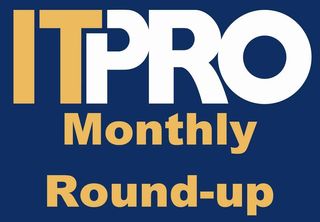Monthly round-up: May
What were the biggest IT stories that shaped the start of summer?

It's already halfway through 2008 and it looks like the long and protracted deal between Microsoft and Yahoo has finally died a death.
Neither could agree a suitable deal over valuation, and Microsoft decided that enough was enough. Struggling Yahoo are still open to making a deal, but its chief executive Jerry Yang has said that he believes Microsoft have decided it is as they originally planned.
Public services has come through a battering this month, with news that two huge government initiatives - the National Identity Scheme and the NHS IT computer overhaul - are going through difficulties once again.
A biannual report from the Identity and Passport Service has said that the initial cost of setting up a National Identity Card Scheme has risen by 37 per cent, from 245 million to 335 million. The NHS has also decided to terminate its 895 million deal with Fujitsu Services.
It's not all bad though - some public sector schemes have been successful, usually on a much smaller scale. Although not as newsworthy as the big laborious schemes, it shows that IT does have merit when these systems are efficiently implemented. Lie detectors to detect benefit fraud have worked particularly well.
June looks like it might see the launch of the 3G iPhone, with analysts suggesting that it will also carry GPS and a physical keyboard. The 3G aspect will dismiss one of the previous version's biggest criticisms and possibly boost sales in places where 3G instead of Wi-Fi connectivity is more popular.
It was also a month where we saw National Work from Home Day, where an estimated five million UK workers skipped the office and chose to work from home. It is thought that 3.5 million people already work from home with the practicalities being made easier due to unified communications such as voice, internet and mobile solutions.
Get the ITPro. daily newsletter
Receive our latest news, industry updates, featured resources and more. Sign up today to receive our FREE report on AI cyber crime & security - newly updated for 2024.
PC companies also told Vista-phobic buyers to exercise 'downgrade' rights so they can keep the older Windows XP operating system. June 30 is the deadline, but customers will have right to preload Windows XP Professional if they choose to do so.
And finally ... Bournemouth becomes the first entire city to receive super-fast broadband through the sewers, with potential speeds of over 100Mbps.




